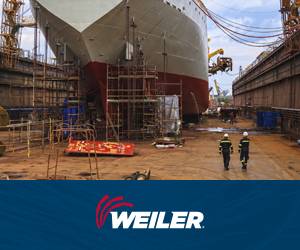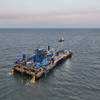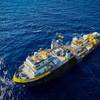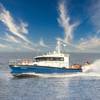At press time, the political debate surrounding the creation and final details of the Homeland Security Department was still being vehemently debated, rightfully so considering that it is perhaps the most significant U.S. government overhaul in nearly half a century. Those hoping for a clean and quick decision on the matter should have known that politics — and time — would eventually cool the fervor created by the September 11 attack. This is not to say that safety and security is no longer a top priority ... quite the opposite in fact. The marine business in and around the U.S. has been under intense scrutiny since 9/11, with measures enacted immediately and evolving daily in a sometimes scattered attempt at “improving security.” To ensure that MR/EN readers are kept abreast of developments as they happen, we welcome a new column (see page 15) from Dennis L. Bryant of Haight Gardner Holland & Knight, who is scheduled to provide a regular article under the “Government Updates” banner.
Those who assume that all of this activity won’t effect business much should rethink that position. While yet defined, the change in store for the marine business in the coming weeks, months and years is very real, and it will reach to the very core of the business; that being the timely, efficient and cost-effective delivery of cargo — be it petroleum, electronics, corn or people — from point “A” to point “B.” Those owners and operators that felt besieged by the storm of new rules and regulations pre-September 11 must feel as though a tsunami has hit them now, as every aspect of their business is under a microscope. But where there is trouble there is opportunity, and quality owners that execute a sound business plan should emerge stronger, as questionable operations wither and die under increased scrutiny.
Opportunities similarly exist for companies, both inside and out of the maritime niche, to provide efficient solutions to help owners and operators navigate increasingly complex levels of security. While it is fair to assume there will be a number of bogus “solutions,” it is also safe to say that adversity has time and again driven innovation to new heights. Makers of yet-to-be-known vessels, systems, products and services will increasingly play a central role in ensuring that maritime transportation remains the most efficient and cost-effective method of moving products.
Sponsored Content
Protect Your Crew. Exceed Weld Standards.

MSC Sets a New Standard for Time Off in 2025, Plus Earn a $44,345 Bonus as an Able Seaman!

August 2025
 Read the Magazine
Read the Magazine

 Read the Magazine
Read the Magazine
This issue sponsored by:

Measuring Success – Is Your Training Actually Working
Subscribe for
Maritime Reporter E-News
Maritime Reporter E-News is the maritime industry's largest circulation and most authoritative ENews Service, delivered to your Email five times per week








